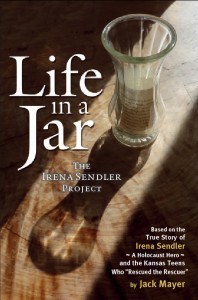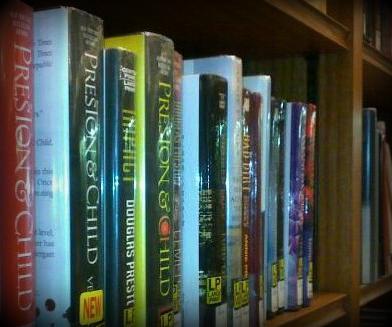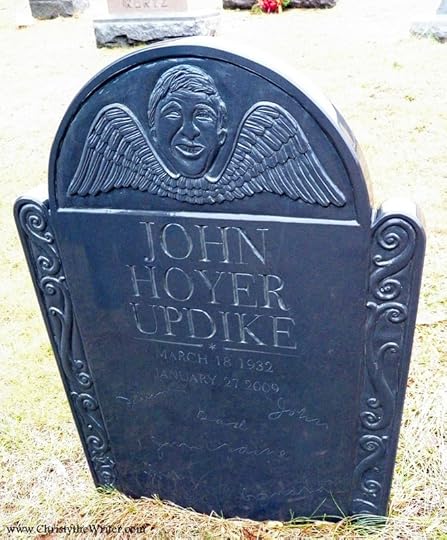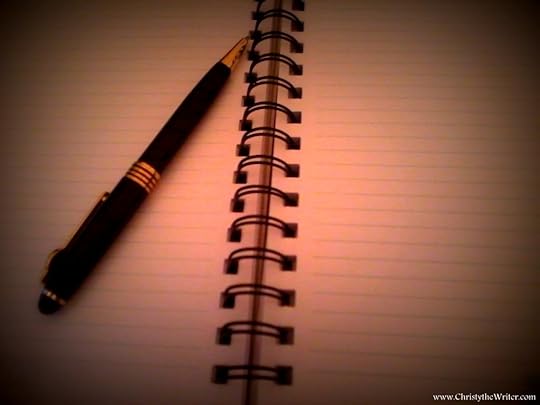Christy Potter's Blog, page 11
April 20, 2014
The Spring Breeze Brings Winds of Change
Spring always feels like a new year to me. I know it’s partly because my birthday is in April, so it’s my personal new year, but with everything in blossom and bloom, it’s easy to find a new outlook, a new purpose, a new beginning.
So much has changed in my life recently, and while the road has not always been smooth, it has all been so positive that I can’t even regret the potholes. Being jarred around a little keeps me awake.
My reflective mood, I think, stems from how much time I spend alone these days. I’ve always enjoyed solitude, quiet times of woolgathering and self-reflection that rejuvenate and focus me. Since quitting my regular job to become a full-time writer, I’ve found myself not only with an abundance of time by myself, I’ve discovered that those uncomfortable thoughts you can duck when you’re busily surrounded by other people are not so easily ignored when you’re alone.
It has also stemmed from the writers absorbing me lately, from the raw realness of Joan Didion to the Kant I’ve tackled as research for a piece I’m writing on truth. Writers who make you want to do more, be more, feel more … those are the writers worth reading.
At some point during this endless, snowy winter, my life took on a dreamy, introspective quality, and I spent a lot of time journaling, sorting out my mental clutter, whispering the difficult questions, and listening, really listening, to the answers that came back. And where I knew I had to make changes, I began to make them.
Some of them were major, like relocating to a new home in a new state. Some of them were minor, like cutting down on coffee and alcohol and drinking more green tea. Some were external, like finding an exercise routine I actually enjoy. Some were professional, like redesigning this blog and my podcast. And some were internal, like finally facing those things from my past that I no longer want to define me and letting them go once and for all.
But what it all comes down to is that I’ve started taking better care of myself. I have found a new level of self-respect I’ve never had before.
Joan Didion, in her essay “On Self-Respect,” says “However long we postpone it, we eventually lie down alone in that notoriously uncomfortable bed, the one we make ourselves. Whether or not we sleep in it depends, of course, on whether or not we respect ourselves.”
What I’ve learned lately about self-respect enables me to not only consider my past as just that, it lets me look at myself in the mirror every morning and say, “I will take care of you.”
That sounds easy enough, of course, but taking care of ourselves is so much more than going for a jog or getting a mani-pedi. In fact, I’ll go so far as to say that things like that have nothing to do with taking care of ourselves. Not really. When the manicure chips, a few swipes from an acetone-soaked cotton ball are all it takes to make it disappear. When the chips are on the inside, they’re not wiped away so easily.
Taking care of yourself means different things to different people. Here’s what it means to me.
I’ve learned to say no. I’ve heard it my whole adult life, yet I still found myself constantly saying yes to, well, pretty much everything. I didn’t want to let anyone down, I wanted to be seen as nice, as sweet, as helpful and, perhaps most importantly, as vital. Instead, I found myself a stressed-out mess with no time for my writing, for yoga, for friends, for reading a book, or for just doing nothing.
Chef Melissa d’Arabian told me not long ago that she has gotten her life’s purpose down to a clear, concise statement. Now when she’s asked to do something, she holds it up against her purpose. If whatever it is helps her fulfill that purpose, she does it. If not, she says no. Not only does it help her keep her focus, but what a beautiful example to set for her young daughters.
I’ve learned the importance of surrounding myself with positive people, and with phasing negative people out of my life. It’s not easy to do, I know, especially when the negative people are lifelong friends or your own family, but even if you can’t cut them out of your life, you can at least relegate them to the sidelines, distancing yourself from their negativity as much as possible, and reminding yourself (as many times as you need to) that their issues are their issues, not yours. Do not make them yours.
I’ve learned not to pursue anyone who has walked out of my life. If they want to leave, let them leave. Hold the door for them. Life’s short enough as it is.
I’ve learned to stop… and this is a tough one, so brace yourself… the negative self-talk. If anyone else ever said the things about me I’ve said about myself, I’d have punched them right in the face. It’s not helpful, it’s not healthy and it does nothing to move me forward in my spiritual growth.
Similarly, I’ve stopped apologizing for who I am, and what I believe in. I don’t jam my beliefs in anyone’s face, but neither will I put up with them jamming theirs in mine. There’s a huge, fundamental difference between being informed and being opinionated. If I won’t argue with you, go ahead and assume I find you only the latter.
This list could go on indefinitely, and it is, of course, a work in progress since my needs change and evolve over time. And anyway, it’s not critical that you know everything I’m doing in my road to self-awareness and a healthy, balanced life. What’s critical is that you make your own list. Every day is a new beginning, a fresh start, a chance to get it right, a chance to take care of you.
April 17, 2014
Running with Wiener Dogs: A Reflective Christy Potter Birthday Story
It was one of those mornings here, the kind where Spring winks at you through the window and gives a flirty little beckon for you to come outside. So you do, only to find that Winter is hanging around to spit in your face like a jilted lover as soon as you walk out. Still, it was a nice morning for a run, and I was two miles in when a comically chubby little dachshund came out of nowhere and started sniffing around on the grass by the curb.
I stopped to greet him, putting my hand out for him to smell, and told him he was a bit too close to the road for my comfort and perhaps he should reconsider where he did his sniffing. I started to jog again and he fell into step beside me. We jogged along for about three houses until he veered off and headed up the steps to what I assume is where he lives. I jogged on, alone, but somehow happier for this encounter.
Today is my birthday, and my longtime readers know that this is the day, more than any other day, when I turn up the introspection and get all deep and reflective and kumbaya. But the fact is, it’s hard to take things too seriously on a day that began on a run with a wiener dog, so today I’m finding myself reflecting more on where I’m at, right now, right this moment, in the little space I occupy on the planet.
I’m 45 today, which for some reason strikes me as a very odd age. Being 45 sounds ancient when you’re 25, and childlike when you’re 65. But when you’re 45 and you feel 45, well, that puts you right on the fence, doesn’t it? Does that mean you feel young, or old? I don’t feel either one, actually. I feel frozen, stuck, like I have some industrial strength adhesive on my butt that will not let me move in either direction, toward feeling young or old, all I’m allowed to feel is 45. It’s a difficult age, I think. Haha, I’m at that difficult age, you know, the one between potty training and death.
I think 45, really anywhere in the mid 40s, is the hardest age of all because you aren’t young and you aren’t old. When you’re young or old, you and everyone else can just write the stupid stuff you do off to your age. “Well, don’t worry about it, you’re only 16. You didn’t know any better.” Or “Oh well, you’re 98. You couldn’t help it.” But when you’re 45, there’s nothing you can do with your life but own it. When you’re 45, you’d better have your act together. Things that are “cute” when you’re little and “quirky” when you’re old just make you weird when you’re in your 40s. And lately I’ve been feeling the pressure that comes with facing the fact that I’m 45, and I still don’t have my act together.
But right now, today, my birthday introspection has made me realize that I honestly don’t care. I kind of like not having my act together. I have it together in the important ways – I can bathe and dress myself, I know how to handle money and how to order a turkey sub with light mayo at Subway. Beyond that, having your act together is seriously overrated. I’m a dreamer, a dawdler, and despite having been a journalist for most of my adult life, I find deadlines or any kind of serious structure to be horribly weighty and dull. Now that I’m 45, part of me wants to have the footloose freedom I had when I was 15, and the rest of me craves the stability I know I’ll need when I’m 85. In every way, I’m somewhere in between.
Last year at this time, I shaved off all my hair – ala Demi Moore in GI Jane – and took my first hard look at myself as I really am, gray hair, slightly lumpy scalp and all. It was liberating, seeing my unframed face in the mirror. This year, I’m looking at my unframed, unstructured spirit and feeling a liberation that blows last year clean away. I may not have my act together the way I’ve always believed, and been told, that I should, and I’m glad. Tonight I’m going to my favorite pub for a drink and a laugh with people who matter to me, and tomorrow I’m going to write, and every moment in between and ever after, I’m just going to go wherever life takes me.
Right now I think I’ll go see if that dachshund knows where to get good cake around here. I’ve a feeling he does.
April 13, 2014
Going Gray: an incredible story of love and heroism during World War II
My “Going Gray” podcast guest today is Jack Mayer, a Vermont-based pediatrician and “closet writer” whose book, “Life in a Jar: The Irena Sendler Story,” has garnered numerous awards.
Jack’s book caught my attention for a lot of reasons, not the least of which is the fact that it’s about three teenaged girls from Kansas who helped bring to light the nearly overlooked story of Irena Sendler’s bravery in saving 2,500 Jewish children from the Polish ghetto during World War II.
Himself the son of Holocaust survivors, Jack clearly feels this story to his very core. This was one of the most intense, beautiful interviews we’ve had so far on “Going Gray.” Click on the book cover below to listen (once the player opens, you can right click to download to your computer).
Please feel free to share this with your friends – Jack donates 60% of the book’s royalties to the Irena Sendler/Life in a Jar Foundation. The foundation promotes Irena Sendler’s legacy and encourages educators and students to emulate the project by focusing on unsung heroes in history to teach respect and understanding among all people, regardless of race, religion, or creed.
April 11, 2014
The eye of the beholder: what’s ugly?
I wandered across an article on the web yesterday (no idea how I got there, but you know how it goes) that listed, complete with photos, celebrities with “ugly significant others.”
Seriously? This is what entertains us now? Overlooking for a moment the fact that “ugly” is about as subjective a term as you can get, I have to say that with everything else we’ve got going on, that someone would take the time to compile such a ridiculous list in the first place makes me feel all screamy. But even beyond that, I’m mystified by this obsession we seem to have with each others’ appearance. It’s worse than our preoccupation with our own appearance. Please tell me I’m not the only one who sees the irony in that. Fat shaming, thin shaming, age-appropriate clothing, hippie, hipster… Gah. Give it a rest already.
I’m probably a little more sensitive to this whole phenomenon right now because I was criticized recently by yet another hair stylist for my decision to let my hair go gray. “But you’re so young,” the woman at the salon I was visiting in Los Angeles pleaded with me. “You really shouldn’t give in to the gray yet.”
I wasn’t aware that letting my hair be its natural color was tantamount to surrendering my will to live, but there you go.
I think what disturbs me the most about this whole thing is that little kids – the ones among us who have no filters whatsoever – are more accepting of each other’s appearance. A kid cares if another kid is a jerk. A kid cares if another kid wipes a booger on his arm. A kid could not, however, give a scrap of a damn if another kid is sporting a weird haircut or orange pants. But as soon as we’re older, all of a sudden we take great offense to what someone else looks like? That’s messed up.
I suppose a big part of the blame can be settled squarely onto the shoulders of the Internet. Before we were blessed with the Web, people just muttered things under their breath about other people, or rolled their eyes as loudly as they could when they saw someone whose appearance was at cross-purposes with their own ideals. But now, as I’ve said countless times in the past, we can hide behind our computer screens, the technological equivalent of throwing a snowball and then ducking behind a tree before the victim can see you.
Not all of us are as emotionally shored up as Lizzie Velasquez, the young Texas woman who found a video of herself on YouTube that labeled her the “world’s ugliest woman,” or Balpreet Kaur, the Ohio State University student who learned that someone had posted her photo on Reddit, making fun of her facial hair. In fact, I’d daresay most of us aren’t. So why do we continue to do it? And if you are one of those who doesn’t, let me ask you a different question: why do you tolerate it when others do?
April 1, 2014
Your hearts must be so fond by now
If absence, as they say, makes the heart grow fonder, you and I ought to be getting engaged right about now.
Mea culpa, my friends, for the long absence and the quirky behavior on my blog of late. The truth is, my blog is undergoing some major reconstruction that is taking longer than intended, so for the time being, it’s going to stay like this so I can keep posting. When I roll out the new blog, you’ll know. Believe me, you’ll know.
I’ve also been undergoing some personal changes, which I’ll write more about later, but the other major factor in my lack of blog postings lately has been my writing. I’ve been consumed, subsumed, and completely awash in my new writing project, a play I’m very excited about. I also have a number of ideas percolating away, quietly waiting their turn. My podcast, Going Gray, is also picking up an amazing and loyal following (you can click here for recent episodes, or download them for free in the iTunes store).
I also have created this new logo that will be used to tie all my creative projects together, so when you see it, you’ll know it’s me. Branding WIN!
So in short, I’m busy, creatively blessed, and abundantly happy. I hope you are too. I’ll be back soon with more.
February 8, 2014
Book giveaway today! Plus meet some other fab writers and let’s talk chocolate
I’m excited to be taking part in a great book launch event today that is bringing together some wildly talented writers from both the US and the UK. The event, called “Confessions of a Chocoholic,” runs all day today on Facebook. Click here to join us!
The fun part of today’s event is that it’s not just for my recently released book, “Oh Brother,” but also for books by several other fabulous authors on both sides of the pond. As regular readers of this blog know, I was a career-long journalist until I stepped down a couple of years ago to focus on writing books and plays. Since that time, I’ve made some wonderful friends in the author community, and constantly I’m amazed at how writing bridges gaps of age, gender, and geography. The friendship and support of my fellow authors are true lifelines in what can be a solitary and sometimes lonely occupation.
That said, the authors who will be participating in today’s book launch include Lynda Renham, Sarah England, Sue Watson, Sue Fortin, Jon Rance, Mandy James, Mandy Baggot, Kathryn Brown, and Anna Bell. Click on any of their names to visit their websites or their Facebook author pages.
The title of our launch party, “Confessions of a Chocoholic,” comes from Lynda’s book of the same title, which is a quirky and hilarious little book that’s just what it sounds like – the funny, day-to-day situations the chocolate-loving Lynda gets herself into.
The party (which you can join by clicking here, don’t forget) will include lots of talk about chocolate (I’d suggest a Toblerone, Twix, or any Cadbury variety be in your hand when you join in, because otherwise, you know… cravings) and lots of book giveaways.
Now… if you’d like to win a copy of my debut novel, “Oh Brother,” there are two things I need you to do.
1. Please tweet the following:
Win @ChristyWriter fab book here http://on.fb.me/1arX5pT Join us for fun and chocolate and lots of prizes #chocolate #launch @Lyndarenham
2. Answer this question: What was the name of the book I wrote when I was six?
Just to give you a leg up, the answer is on my Amazon Author Page. Once you have the answer, email it to Lynda at Chocolate@renham.co.uk and she will select the winner.
And that’s it! Thank you all for being a part of this celebration of books, laughter, and chocolate.
February 4, 2014
The psychology of a good clear-out
I’ve been doing a life purge – a ritualistic and cathartic exercise meant to reduce the clutter in my life both literally and mentally. There’s just so much clutter.
“Simplify…” The screen saver on my PC gently bounces Thoreau’s words in front of me. He meant it as a suggestion, I know, but here among the ephemera of my daily life it’s more like a mockery, an admonition of what I’m doing wrong.
It isn’t just the stuff around me. Compared to how I used to live, this is practically Carmelite. Still, I have too much. Too many clothes in my closet, too many boxes in the attic, too many suitcases in my head. A purge, I realized recently, was the only answer. So for the past couple of weeks, I’ve been going through drawers, cabinets and closets, pulling everything out and relegating it to one of two piles: “Keep” or “Must Go.”
The “Must Go” pile is, predictably, the most telling. Clothing I haven’t worn in thirty pounds, things I have in duplicate (What are the odds that in the event of a zombie apocalypse, all that can save the world is a bizarrely large number of my homemade mini muffins?), and items that are emotionally tainted. My rational mind knows the fuzzy pink slippers given to me two Christmases ago by my then-best friend are just slippers – still perfectly serviceable, still respectably pink. But now they represent negativity, sadness, feelings of failure that have no place in my life anymore. Better they go to warm the feet of someone who really needs them, and who won’t view them as fuzzy twin reminders of the tenuousness and mutability of friendships.
There’s a cleansing power in what my British friends call “a good clear-out,” and particularly in giving things away. It’s empowering to know that the coat I haven’t worn in three seasons will be hung on a rack at the thrift store and bought for a dollar by someone who needs it far more than, God willing, I ever will.
But this is about more than just clearing out clutter, and it’s even about more than a bagful of donations to my local charity. It’s about realizing that my life isn’t about stuff. It’s one of those poster-worthy bits of pop wisdom that actually makes sense. Deep sense. Some artists make collages or sculptures out of the extra stuff they have lying around. I’m not one of those artists, although I did try once. “Abstract Mosaic of 80s Teen Romance Novels and Jeans That Used to Fit” just couldn’t find a toehold in the New York art world. Weird. For me, creativity comes from first getting rid of what I no longer need.
That’s the whole point of this purge, really. It’s about literally and symbolically moving the unnecessary clutter out of the way so that new energy can flow in and fill the space with a positive, creative light that illuminates what I have, who I am, and where I want to go next.
January 31, 2014
Friday Short Story: The Library
It was a winter afternoon, the kind of endlessly bleak day that looks like even the sun is just going through the motions.
Self-diagnosed with a bad bout of cabin fever and creative frustration, she decides a change of scenery is needed, stat, and heads for the public library. There, among thousands of volumes that represent ideas and thoughts and challenges and beliefs spanning centuries and continents, perhaps she will find the creative spark that flickered out weeks ago. Dry, cold air that smells of January pinches her nose as she skids and skates to her car, her warm boots dangerously slick on the tired snow. Making it into the driver’s side door without breaking any limbs, she cranks up the heater and the radio before nestling into her misery. It’s not fair, she thinks. This isn’t how it was supposed to go.
Across town, he has made the same decision. The doorway he slept in last night doesn’t feel as sheltering in the light of day as it had when darkness was creeping in, and with every passing hour he’s conscious of the slow chill the pavement is sending into his bones, even through the sleeping bag they gave him at the mission. The cracked leather of his old boots lets in more snow than it keeps out. He gets stiffly to his feet and stuffs his sleeping bag into the knapsack that holds his entire life: a tube of Chap Stick, a pack of cigarettes and an anemic lighter, an extra pair of socks, an expired driver’s license, and ten dollars in loose bills and coins. He doesn’t have a library card, but it doesn’t matter. He doesn’t want to check anything out, he just wants to sit someplace warm for awhile. It’s not fair, he thinks. This isn’t how it was supposed to go.
The library is unusually crowded for a week day. Everyone seems to have had the same idea. People mill about, reading the newspaper, wandering among the stacks, using the computers lined up against the far wall. There’s a muted sense of community in a library. No matter who you are, what you were doing earlier or where you’re going later, when you’re in the library there’s a comforting feeling of belonging.
She feels it, as she walks through the fiction section. My library, she thinks. She feels safe here, pulled into a lifeboat from the raging sea. The books give her a feeling of hope, the belief that she can make it as a writer, the feeling that she’s standing at the top of a long, gently winding road paved by the talents of all those who came before her. She trails her fingers along the book spines, telling herself with more bravado than she actually feels that she will be among them one day. People will read her writing. She will make an impact. But in the meantime, she is struggling to be heard, fighting for survival. You can do this, she thinks. Just hang in there a little longer. It will get better soon.
He feels it, as he settles into an oversized chair, his knapsack at his feet. My library, he thinks. He feels safe here, pulled into a lifeboat from the raging sea. He knows the other patrons are aware of him, and not just because of the smell of unwashed clothes and stale cigarette smoke that follows him around like an unseen entity. He has lived so long in this insular world where all he can think about is where his next meal is coming from and how keep from getting arrested that he knows he no longer blends in. But here, it doesn’t worry him so much. The walls of books, the newspapers on their spindles, the computers remind him that the world outside him still goes on. Someday he’ll join up with it again. But in the meantime, he is struggling to be heard, fighting for survival. You can do this, he thinks. Just hang in there a little longer. It will get better soon.
She brushes past his chair and stumbles over his knapsack. He reflexively catches her arm to steady her. The contact startles them both – they hadn’t even noticed each other. He could be my father, she thinks. She’s my daughter’s age, he thinks. He releases her arm. They look at each other for a moment.
“Are you okay?” he asks. The question reverberates in her head like the crack of a gunshot and she realizes there’s no simple answer to such a simple question. She nods, almost imperceptibly. “Are you?” His nod is no bigger. She moves away then, back among the stacks of books. He tucks his knapsack under his chair.
It’s just not fair, she thinks.
It’s just not fair, he thinks.
January 27, 2014
Giving John Updike his beautiful due
Longtime readers of this blog know well my love for John Updike, who died five years ago today.
For me, Updike is the quintessential writer, a writer’s writer, the embodiment of everything I strive to achieve in my own work. I sometimes feel him hovering about, watching me with that grin that always made him look like he was about to burst out laughing, waiting for me to write something brilliant, to make him proud. “Hey, boss,” I said when I knelt at his remote, rural gravesite the other day. “I know, I know. I’m here when I should be writing.”
I think every artist needs a role model, someone to look up to as they strive to grow in their craft, and Updike is mine. There are other writers I admire, of course, many of them. But something in me connects with Updike, his modest and rural upbringing, his views on religion and society, and his love for, as he famously put it, giving the mundane its beautiful due. It’s that kinship I feel with him that is causing such a struggle in me right now.
I want to write a tribute to Updike today, but I am not sure I can. Alone here in my writing room, I am grieving his loss all over again, but it’s not just the singular, physiological fact of his death that I’m grieving. It’s all the little bits of loss that are stuck to it. The knowledge that I will never sit down with him in some Boston café and talk about character development and plot, the realization that one day I will have read all of his published work and nothing new will be forthcoming, the fact that something as horribly common as cancer had the power to take one of the most celebrated imaginations in all of literature and put it beneath the cold, wet ground in Plowville, Pennsylvania. It doesn’t seem fair, somehow. To him. To me. To a world that so desperately needs real writing.
“There’s a kind of a bliss to writing,” Updike says in the interview I linked to above. “I was aware of that just the other day, that often it feels like a job, and why am I doing this, and who cares anymore? But nevertheless there is a kind of spiritual health in trying to express … reality. When you feel you’ve captured it, if only in a phrase or the correct adjective, there’s something very happy-making about it, and I’d hate to give up that kind of happiness.”
Yes.
This is the point at which I console myself that Updike was a writer, and that alone means he left behind an endless legacy, pages that will be read and shared and quoted by generations to come. But today, there is something else. Today, on this anniversary of his death, comes the full realization of the gift he left me: a world that can still appreciate a well-crafted story, readers who have high expectations from writers, the pliability of language, and the mundane awaiting its beautiful due.
Rest in peace, boss. I’m on it.
January 24, 2014
Dear Diary… why I still believe in journaling
One of the things I most enjoy about the new year is buying a new journal. I always have whatever journal I’ve been scribbling in filled up by the end of the year, but I think I’d buy and start a new one anyway, because of all that it has always symbolized to me. All those fresh, clean pages, and the thrill of not knowing what will be written there by the end of the year. I sometimes wish I knew. Crystal ball syndrome or something. I’d want to make sure to allow extra pages for the good days, and of course, to know where the bad stuff would be cropping up so I could tear those pages out and throw them away first.
I’ve kept a diary or a journal since I was old enough to write. My earliest diaries are full of my huge, crooked, childlike printing, recording important details of my life like the school field trip and what we had for supper. The journals from my teenage years and early 20s, of course, are all full of angst and suffering, as if I knew the first thing about angst and suffering. It was real to me at the time, though, so while it might make me shake my head now, when I read back over the pages, I can see the times where I struggled my way to growth.
These days, I use my journals to sort out issues I’m having with my writing (you don’t even want to know some of the names I called Ariel when she was giving me fits), as well as my spiritual growth, my emotional well-being, and my dreams. I was talking with a friend the other day about why I still journal so faithfully, and my answer was simple: it balances me. As I go through each day, life throws stuff at me with both hands, and if I don’t know how to deal with it immediately, I mentally stick it into a box, and my journal-writing time is when I sort through everything.
Journaling is my favorite kind of writing because it’s so free and uncensored, just a stream of consciousness that moves from my head through my pen and onto the page. No one edits it (thank goodness), no one tells me it’s too long or too short or too, you know, insane. Some of my favorite posts on this blog, like this one about grace, actually started as journal writing as I worked through something that I’d been mulling over. Journaling lets me be honest with myself. Wait, let me rephrase that. It makes me be honest with myself. It makes me dig deep to find the answers I need, to clarify the things that matter to me, to look myself in the eye and say “Okay, now what?” It’s not always comfortable, having to face my thoughts on the page, but it always leads to growth – if not immediately, then eventually.
They’re road maps of my life, my journals, showing me where I’ve been and offering clear insight into where I want to go next.










